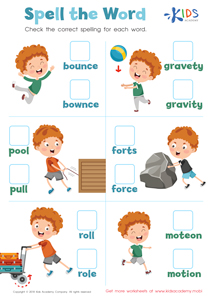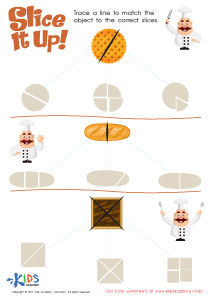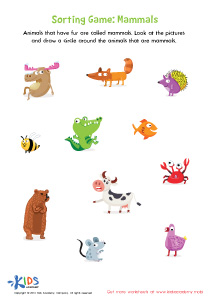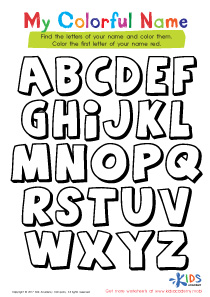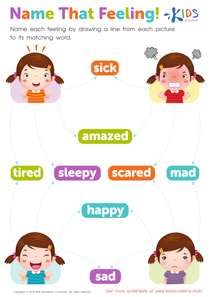Early Logic and Geometry Quizzes for 5-Year-Olds
12 results
12 filtered results
Clear all filters12 filtered results
-
From - To
Unlock the world of shapes, patterns, and problem-solving with our captivating Early Logic and Geometry quizzes, perfectly tailored for 5-Year-Olds! Delve into a fun-filled journey where each interactive assessment quiz not only checks your child's understanding but also offers immediate, constructive feedback to guide their learning journey. From recognizing basic geometric shapes to solving simple logic puzzles, our quizzes are designed to spark curiosity and enhance critical thinking skills. Engage your child with these dynamic quizzes, and watch as they discover the joy of learning Early Logic and Geometry, laying the foundation for their future academic success.
Unlocking the World of Early Logic and Geometry for 5-Year-Olds
In the vibrant learning journey of a child, the foundational years are the most crucial. It's during this period that the seeds of critical thinking, problem-solving, and spatial understanding are sown - skills that are vital for success in all walks of life. For 5-year-olds, who are at the cusp of exploring their academic and creative potential, early exposure to logic and geometry can make a world of difference. This is where our interactive quizzes on Early Logic and Geometry for 5-Year-Olds come into play, offering a unique blend of fun and education that caters to the learning needs of young minds.
Our interactive quizzes are more than just a learning tool; they are a gateway to a world where shapes, sizes, patterns, and reasoning coalesce to form the building blocks of logical thinking and spatial awareness. Designed with the developmental needs of 5-year-olds in mind, these quizzes make learning both engaging and effective.
Why Choose Our Early Logic and Geometry Quizzes for Your 5-Year-Old?
-
Tailored Content: Every question in our quizzes is carefully curated to align with the cognitive level of a 5-year-old, ensuring that the concepts of early logic and geometry are introduced in a manner that is both understandable and relatable.
-
Interactive Learning: We believe in learning by doing. Our quizzes are interactive, allowing children to manipulate shapes, identify patterns, and solve problems through engaging activities that stimulate their curiosity and maintain their interest.
-
Feedback for Growth: Instant feedback is provided in our quizzes, enabling children to learn from their mistakes and celebrate their successes. This positive reinforcement encourages them to keep trying and supports a growth mindset.
-
Foundation for Future Learning: By mastering the basics of logic and geometry at an early age, children develop a strong foundation that benefits them as they progress to more advanced mathematical concepts. Our quizzes lay the groundwork for a lifetime of learning, providing the initial steps towards a deeper understanding of mathematics and its application in daily life.
-
Enhanced Problem-Solving Skills: Engaging with our quizzes helps children develop critical thinking and problem-solving skills. They learn to approach challenges logically and creatively, skills that are invaluable not only in academic pursuits but in everyday life scenarios as well.
-
Boosts Confidence: As children navigate through the quizzes, successfully solving problems and understanding new concepts, their confidence grows. This self-assurance in their abilities can lead to a more positive attitude towards learning and exploring new subjects.
In conclusion, our interactive quizzes on Early Logic and Geometry for 5-Year-Olds are not just educational tools but stepping stones to a broader understanding of the world. They harness the natural curiosity of children, guiding them through the fundamentals of logic and geometry in a manner that is both enjoyable and academically enriching. By incorporating these quizzes into the learning journey of a 5-year-old, parents and educators can spark an early interest in mathematics, laying the foundation for a lifelong pursuit of knowledge and discovery.

